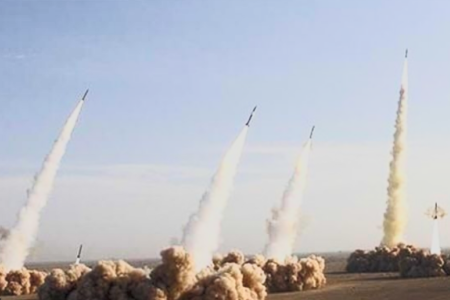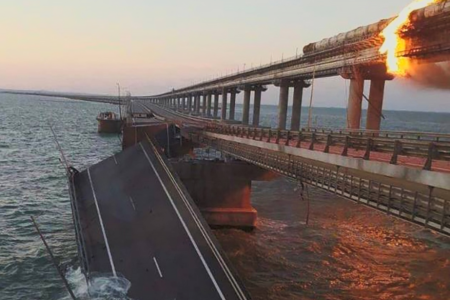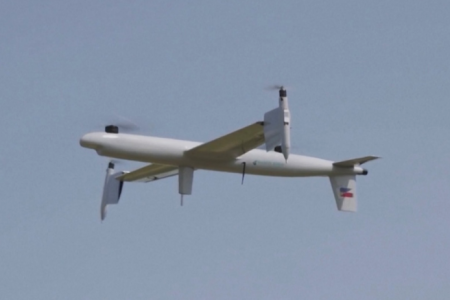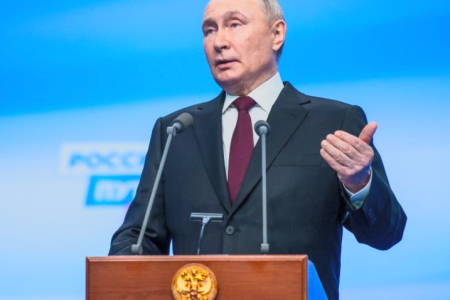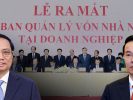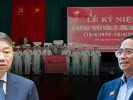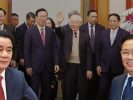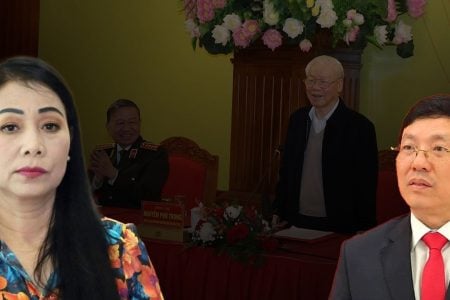
Set up AUKUS to fight China
Recently, an event that has shocked the world public opinion is that the US, UK and Australia have just announced the formation of a special security treaty “Trilateral Security Partnership” (AUKUS) attached to Indo-Pacific Oceans.
Although China is not named, almost everyone thinks that the events leading to the formation of AUKUS are largely due to China. It is the pressure that China has exerted on Australia, the most prominent recent example being Beijing’s response to Australia’s call for an independent investigation into the origins of COVID-19. The way Beijing has “whipped” Canberra has made Australia realize the urgent need to find ways to push back Chinese influence.
AUKUS is the latest multilateral cooperation framework that the Biden administration is pushing amid growing US competition with China in areas ranging from the military, the economy to technology.
What is the content of the agreement in AUKUS?
The agreement covers the sharing of information and technology in a number of areas, including intelligence and quantum technology, as well as the sale of missiles. But nuclear-powered submarines are key. The point to note is that these are nuclear powered submarines, not nuclear weapons. Australian Prime Minister Scott Morrison said: “I need to make it clear that Australia is not seeking to have a nuclear weapon or to establish a nuclear capability for civilian purposes.”
But why nuclear submarines? Simply put, the issue here concerns range, stealth, and power. A diesel submarine doesn’t have the range or endurance to get from Australia to somewhere like the South China Sea or the Strait of Malacca and stay at sea for long, but a nuclear submarine has enough that capabilities. Nuclear submarines have better stealth, are harder to detect because they don’t have to run near the surface to recharge their batteries, and have a dangerous avoidance speed if the risk of detection is high. Michael Shoebridge, Director of Defense, Strategy and National Security at the Australian Strategic Policy Institute, said: “A nuclear-powered submarine has formidable defensive capabilities and is therefore to cover whole area. Only 6 countries in the world can have nuclear submarines. Indeed, they have an extremely powerful deterrent without the use of nuclear weapons.”
According to the US Department of Defense 2020 report on China’s military power, the People’s Liberation Army (PLA) navy operates six nuclear-powered attack submarines and 50 attack submarines powered by diesel engine.
The meaning of the establishment of AUKUS
First, AUKUS will have geostrategic implications as it visually strengthens the closest alliance relationships that the United States shares with allies in both the Indo-Pacific and Europe – especially the UK and Australia. A European ally of the United States is working with an Indo-Pacific ally of the United States to jointly develop undersea capabilities and patrol the waters of the Pacific. This signals to China that, like America’s allies in the Indo-Pacific, America’s European allies are taking China’s coercive military activities seriously. States in the Western Pacific (e.g. against Taiwan and military activities in the South China Sea).
Second, the AUKUS will have military significance, helping to enhance the ability of US-led coalitions to deter Chinese military coercion even as Chinese capabilities continue to develop rapidly.
Third, Peter J. Dean – senior fellow at the Scowcroft Center, Director of the Institute for Defense and Security at the University of Western Australia – thinks AUKUS is a big step forward for all parties. He said that although Australia is the country that will be supported to develop nuclear-powered submarines, the decision also demonstrates the Biden administration’s willingness to empower key allies with advanced military technology which the United States has not yet been willing to share. This is the second time the US has shared nuclear technology with another country after the first time with Britain in 1958. One US official said such technology transfer is unlikely to happen a third time. They explain: “This is extremely sensitive technology. It can be said that this is an exception to US policy in many respects“, while emphasizing that the process of equipping the Navy Force Royal Australia (RAN) nuclear submarines will be both a challenge and an important highlight. However, Australia currently has no domestic nuclear infrastructure. Although the Australian government has pledged to develop domestic nuclear facilities in this direction, but this will have to be a sustained effort over many years.
The time of signing the AUKUS agreement is also of particular importance. The deal comes just a month after the US withdrawal from Afghanistan, casting doubt on America’s commitment to Asia. Britain is also eager to engage more in the Asia-Pacific, especially after it withdrew from the European Union (EU), and Australia is increasingly concerned about the extent of China’s influence.

Guy Boekenstein, senior director of defense and national security for the Northern Territory government, said: “This is a ‘big deal’ because it really shows that all three of these countries are plottingboundaries to begin to counter the Chinese Communist Party’s aggressive activities in the Indo-Pacific region. It also openly demonstrates our shared position on the issue and our commitment to a stable and secure Indo-Pacific that over the past 70 years has brought prosperity for the whole region, including China’s economic development.”
Meanwhile, Republican Senator Ben Sasse said the agreement “sends a clear message of strength to President Xi Jinping.” “I would always welcome concrete steps against Beijing and this is one of them,” he said.
What impact does AUKUS have on the South China Sea and Vietnam?
The AUKUS agreement shows that the US, Australia and the UK see the South China Sea as the main venue for competition with China.
Former Australian Prime Minister Kevin Rudd noted that Prime Minister Scott Morrison’s government needs to clarify whether the US requires Australian nuclear-powered submarines to be deployed to assist the US in any conflict related to Taiwan or the South China Sea. Regarding this question, on September 17, the US confirmed that it did not make a request for “reciprocity.”
The response of Southeast Asian countries is quite different to this issue. Countries with positive views on the South China Sea issue such as Vietnam, the Philippines, and Singapore feel that it is a good thing to prevent China’s influence, even if they do not openly express it.
However, some other Southeast Asian countries fear that the AUKUS agreement is a clear signal that the West will take a tougher stance against China by admitting Australia to the “nuclear club.”
Both Indonesia (the unofficial leader of ASEAN) and Malaysia are concerned that AUKUS will also lead to a major arms race in the Indo-Pacific region.
This will also be a challenge but also an opportunity for Vietnam, which has always insisted on not choosing a side between the US and China. Vietnam is trying to balance the relationship between the US and China. The relationship between the two communist parties and the two governments of Vietnam and China has been established for a long time, and the US was once a former enemy. However, relations between Vietnam and the United States have rapidly developed. In particular, the Vietnamese people clearly expressed the attitude of “like America, hate China.” This also partly affects the foreign policy of Vietnam. A US official said that AUKUS will soon promote relations with potential partners, of which Vietnam will be one. The impact that AUKUS brings will cause shifts in the global order. In a complex world like today, the only thing that will ensure Vietnam maintains its position, apart from balancing among the great powers, the key point must be to enhance its own strength.
Former Minister of Planning and Investment Vo Hong Phuc recently shared on his Facebook a memory in 1993 with Singapore Prime Minister Lee Kuan Yew. Mr. Lee Kuan Yew told Mr. Phuc that year: “When investors from the United States, Western Europe, and Japan hold their position as the leading investors in Vietnam, you will succeed! To do so, you must have a favorable and transparent investment environment!.. To do so, you must have a strong government from the leader to the executors! For that, your government must be composed of the best and cleanest.”
So far, Mr. Lee Kuan Yew’s comments are still true for Vietnam, but Vietnam has not yet done what Mr. Lee Kuan Yew suggested.
Thoibao.de (Translated)





